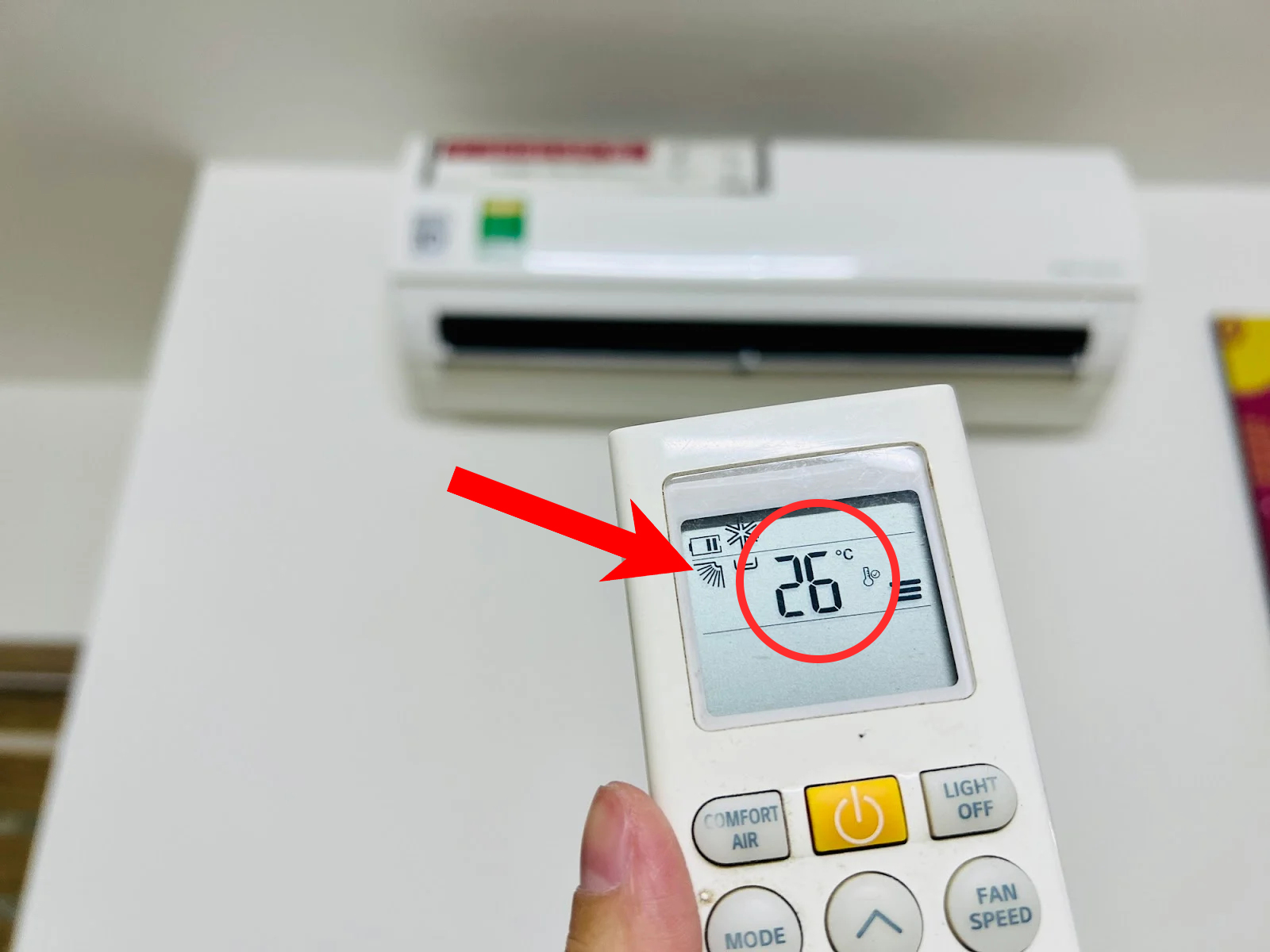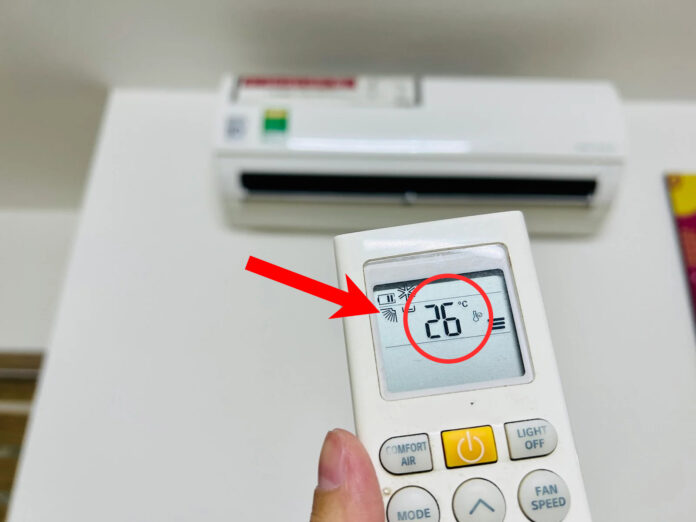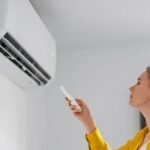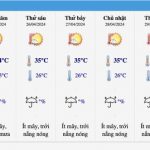Using air conditioning efficiently and healthily is especially important during hot weather, especially at night. Many people have the habit of setting their air conditioners to 26 degrees Celsius, believing that this temperature is cool enough while being energy-efficient. However, according to experts, 26 degrees is not always the ideal choice, especially when sleeping.
Is it advisable to set the air conditioner to 26 degrees at night?
Most households today set their air conditioners to 26 degrees, assuming it is the perfect balance between comfort and energy savings. Even restaurants and offices tend to default to this temperature. Indeed, numerous studies have confirmed that 26 degrees Celsius is the most comfortable temperature for the human body during daytime activities while reducing energy consumption by avoiding deep cooling.

Image caption
However, at night, the human body’s temperature naturally decreases after 1-2 hours of deep sleep. If the air conditioner remains at 26 degrees without a blanket, one might feel chilly, struggle with insomnia, or even catch a cold. This not only impacts health but also leads to unnecessary energy consumption.
The recommended solution is to utilize the “Sleep” mode, a feature available on most modern air conditioners. When activated, the machine automatically increases the temperature by one degree every hour, totaling a two-degree increase over two hours. For instance, if you start sleeping at 26 degrees, the temperature will adjust to 27 degrees after an hour and then to 28 degrees. This 28-degree setting is considered optimal for the body’s resting state, ensuring comfort even for young children.
In addition to health benefits, the sleep mode also significantly saves energy as the gradual temperature increase reduces the machine’s cooling capacity.
How should air conditioning be used reasonably during the day?
During the day, 26 degrees may not always be suitable, especially for those dressed lightly in sleeveless tops or short skirts. Prolonged exposure to cold air can affect joints and cause fatigue. Experts advise maintaining a temperature difference of 7-8 degrees Celsius between indoor and outdoor environments. For instance, if the outdoor temperature is 35 degrees, setting the indoor temperature to 27-28 degrees prevents heat shock when going outside.
How to prevent dry air in the air-conditioned room?
Apart from temperature, another common issue with air conditioning is dry air in the room. Many people experience throat irritation, dry skin, or even nosebleeds after sleeping in an air-conditioned room overnight. This happens because the air conditioner absorbs moisture from the air, and the closed room lacks ventilation.
A simple solution is to place a basin of clean water in the air-conditioned room. The water will evaporate, naturally balancing the humidity in the air, moisturizing the skin, soothing the throat, and reducing respiratory problems. This method is cost-effective, easy to implement, and beneficial to your health.
Reference: The Amazing Times
The Best-Selling Air Conditioner Brand at Dien May Xanh
The hot season is upon us, and the demand for cooling appliances is soaring. Since April, Dien May Xanh has witnessed impressive sales figures for air conditioning brands, with Nagakawa standing out as the best-selling brand.
Is Sleeping with the AC at 28-29 Degrees Celsius Energy Efficient?
“Many people believe that setting their air conditioners to 28 – 29 degrees Celsius is the optimal temperature for a good night’s sleep. They assume that this temperature range provides a cool and comfortable environment while also being energy-efficient. But is this really the best approach for a restful slumber and cost-effective energy usage?”
Air Conditioner Inverter Economic Quandary During Hottest Days Of 30/4 – 1/5 Holidays
Actual experiments have shown that if you use the inverter air conditioner, users can save a surprisingly large amount of money as compared to the regular air conditioner.





















